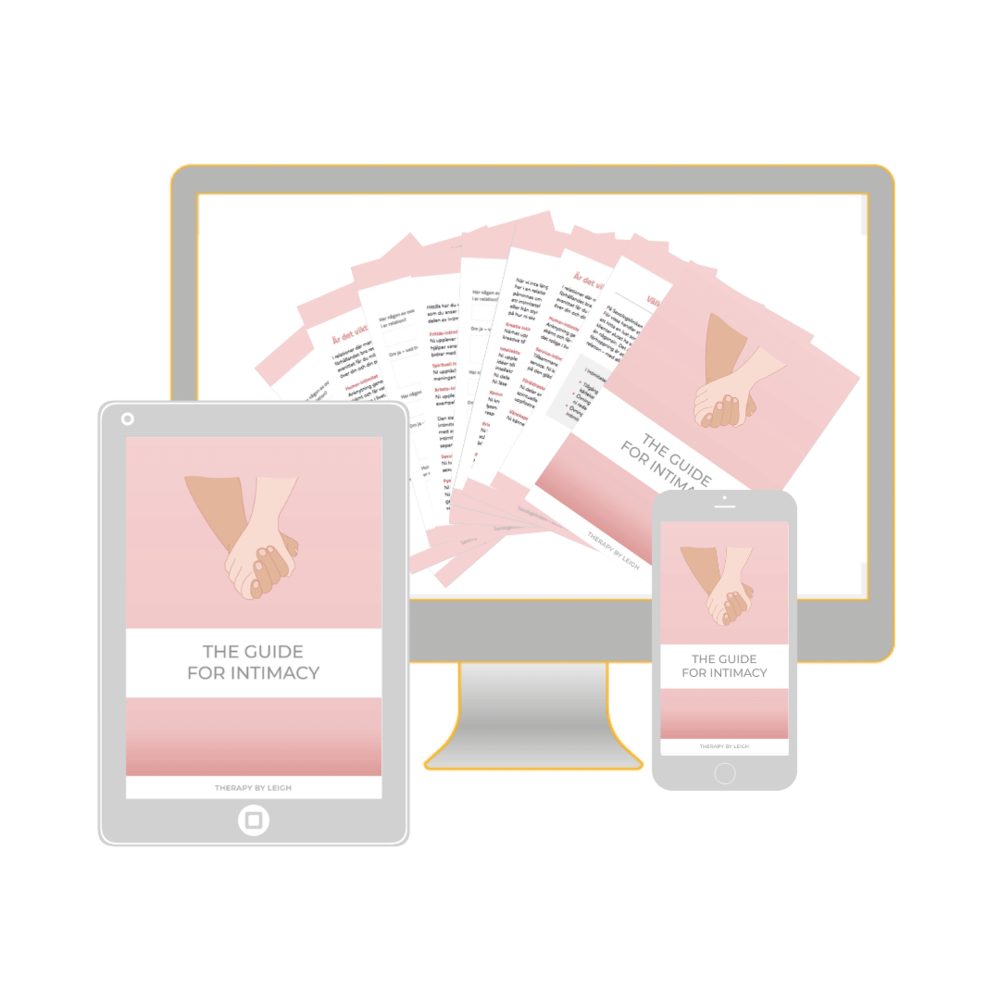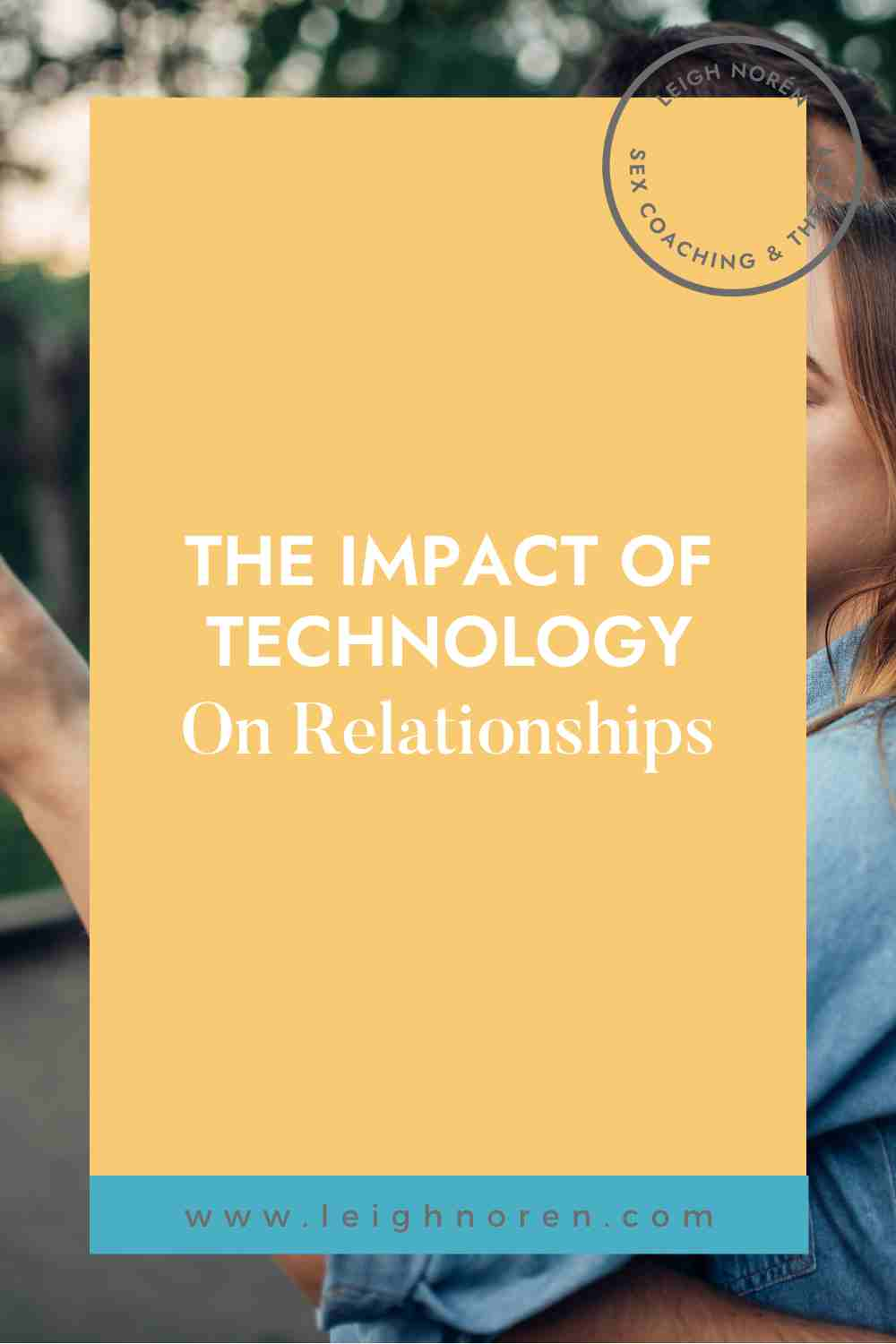The Impact of Technology on Relationships
7 minute read
Arguing about your partner’s mobile phone use yet again? You’re not alone. But while it would be easy to assume that the impact of technology on relationships is mostly negative – there are lots of positives, too. If you’re curious and asking yourself ‘how does technology affect relationships’ – this article, written by a sex and relationship therapist, has you covered.
How does technology affect relationships?
The positive impact of technology
Offers free relationship & sex inspiration
One of the most hotly debated parts of technology is social media. And while a lot of people have negative experiences with it, it does offer some positives.
On Instagram there are thousands and thousands of sex therapists and relationship therapists offering free content.
Whether it’s about how to manage conflict or how to have your first orgasm – you can pretty much find anything on there.
This is a great way to be inspired to create change in your relationship, Posts and reels can even be shared with your partner as a means of starting a hard conversation. The same goes for blog posts (like this one!). Sharing something thought-provoking can lead to important behaviour shifts for a better, closer relationship.
More intimacy in long-distance relationships
One of the best parts of our ever-expanding technological advancements has to be how they benefit long-distance relationships. Because when you can’t cook dinner together, ease into each other’s arms on the sofa or have sex – you need other ways of keeping a relationship alive.
With smartphone apps that enable video calls and sex toys that can be used to share pleasure at the same time (even if you’re halfway across the globe), it’s easier than ever to create intimacy.
This means your relationship is likelier to not only last longer – but keep evolving.
Experiences can be more easily shared when you can bring your partner along in your pocket. And shared experiences are a crucial part of keep any partnership interesting!
Makes logistics easier
How does technology affect relationships? When it comes to logistics – positively!
Whether it’s a quick phone call to your partner, or an update on your shared grocery list app – we can all agree smartphones often make everyday tasks easier. Not only that – there are so many services nowadays powered by technology that simplify our day-to-day. Services like meal kits can make dinner time a heck of a lot easier for busy families and couples.
Another added benefit is that with the ability to reach our partner whenever, we’re given the opportunity to plan less, and live a little more.
Great way to build sexual anticipation
As a sex therapist and coach, I talk a lot with my clients about the importance of building sexual anticipation. Because sex isn’t just about the physical act – it’s mental too.
For some, the build-up over the day through sexy texts or nudes can serve as a great way to prime ourselves and our partner, for sex.
Especially in long-term relationships or marriages, this can be a low-lift way of infusing some sexual novelty in the bedroom.
Technology can also be used to turn yourself on, so you’re more interested in sex with your partner. There are countless apps, websites and audiobooks you can use to create sexual tension within – to release together with your loved one.
Offers us temporary relief
One of the most under-discussed positives of technology, is that it can serve as temporary relief. Whether social media is addictive or not, it can actually fulfil a need for a temporary safe space. A place to retreat when the demands of our lives feel like way too much.
This temporary break doesn’t necessarily mean it’s the best relief out there. However, if you’re struggling and getting quiet or meditating is more anxiety-producing than relaxing – it can be a saviour in the moment.
Over time though, it’s good to look for other ways of decompressing, because technology use is only a short-term bandaid, not a long-term fix.
But it’s important to remember that disconnecting from your life through social media, a tv-series, or catching up on your favourite forum, isn’t inherently toxic or bad. No matter what popular debate would lead you to believe. Sometimes we’re too wired to get quiet, and that’s okay.
DO YOU WANT TO GET CLOSER TO YOUR PARTNER?

My free resource The Guide for Intimacy gives you access to tools that help you increase the shared intimacy in your relationship – with or without sex.
Download the 13-page guide and you also get access to my deeply appreciated, weekly newsletter. You can unsubscribe at any time.
The negative impact of technology
Makes co-regulating harder
As mentioned above, our phones can be a great distraction from our real lives. And goodness knows life can be hard nowadays! But if we’re used to technology mellowing us out when we’re frazzled – we might start to seek out the comfort of others far less. Like our partner’s warm embrace, for instance.
One of the best parts of a good romantic relationship or marriage is co-regulation. According to The OT Toolbox, co-regulation is “the ability to regulate emotions and behaviors to soothe and manage stressing internal sensory input or external situations, with the support and direction of a connecting individual”.
Essentially – co-regulation is when you and someone else can help each other de-stress. Oftentimes this is done through soothing voices, close physical contact, and someone who is there to listen and show empathy.
If you consistently use your phone, more than your partner or someone else, you forego the benefits of co-regulation. Over time, this pattern becomes reinforced, because your brain remembers it feels good to distract, rather than to co-regulate.
This is important to keep in mind when your partner reaches for their phone, as this might be their way of regulating. So while it may be rude and appear odd, it could also be a coping mechanism – but one that’s important to break over time.
Creeps in on time for undivided attention
When you’re asking yourself “how does technology affect relationships”, one of the most obvious answers is likely going to be: negatively.
Just as this one qualitative study remarks – technology can create connection when we’re apart, but sometimes create distance when we’re together.
If you’ve ever sat down to a romantic meal to find your partner scrolling social media or replying to a quick email as you’re sharing about your day, you’re not alone. In fact, being joined at the hip with our phones can make it increasingly hard to shower our partner with undivided attention. Or to feel seen and heard ourselves.
With ever-pinging notifications and others to respond to, our relationship can be put on the back burner. Because the urgency our phones create can be hard to compete with as a human being.
Make time to not multi-task, and look your partner in the eyes. Even if they’re only telling you about Roberta’s annoying dish-stacking habits at work again.
By offering undivided attention you’re telling your partner they’re important. That their feelings, experiences, and thoughts matter. And with more of this – comes bountiful intimacy. The stuff we all want, deep down.
Social media can oversimplify complex behaviours
While the free advice and psychoeducation on social media platforms is great – it does have a downside. This is because most apps require that a professional offers hot takes and simplified explanations.
While opinions and simplifications can be helpful, and certainly more digestible, they lack nuance. And without nuance, complex matters such as sex and relationships suddenly become black and white.
This in turn may cause us to think in black and white terms about our partner and their behaviours. Enabling us to draw (often faulty) conclusions about why they do something. Which over time can lead to a lack of communication, and a weakened bond.
The grass always seems greener
Social media often makes it seem like everyone else’s relationship is a just a liiittle bit better than your own. If it looks like other couples are always out on date nights and indulging in getaways, you can rest assured this isn’t the case.
Social media has been called “the highlight reel” for a reason.
Most people aren’t out there sharing about how their laundry argument turned into a conversation about divorce. Or how they haven’t had sex in 5 months and sleep in separate bedrooms.
Just because you don’t see it – doesn’t mean it’s not happening. And just because everyone else seems in love 24/7, doesn’t mean they are.
Positive and negative effects of technology on relationships
Technology impacts all of our relationships – not least our romantic ones. But while it can provide us with helpful content, offer temporary relief, or connect us when we’re apart – it can also tear us apart when we’re together.
When we struggle to get through a meal without checking our phones, the intimacy between us can easily be eroded.
If you’re looking to keep your relationship alive and have a great sex life, you need to practise turning towards each other (as much as you turn toward your screens).
And while the word ‘balance’ might feel like an impossible thing to achieve in this day and age – striving for it is your best bet. This way you can harness the impact of technology on relationships positively. For a great relationship and a satisfying sex life that lasts.

(and what to do about it)
Get instant access to expert advice, delivered directly to your inbox when you download The Desire Test.
Unsubscribe anytime.
With 11 years of experience in the helping profession - Leigh helps her clients create stress-free, shame-free, pressure-free sex lives, through her unique combination of sexological science, & psychotherapeutic & coaching tools.
OTHER POSTS YOU MIGHT ENJOY
Copyright © 2019-2024 Leigh Norén. All Rights Reserved. | Website by Pinegate Road
Cookie policy | Terms & Conditions | Privacy Policy


